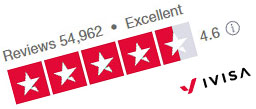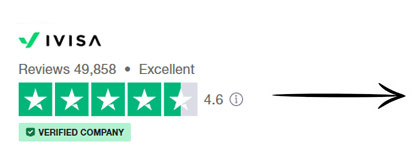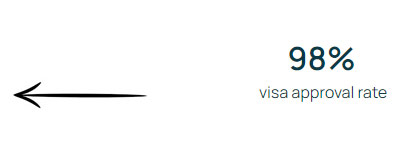Saudi Arabia: US citizen need visa?
US citizens wishing to travel to Saudi Arabia can now easily obtain a tourist visa thanks to the Saudi eVisa, set up to facilitate access to the country.
 Fast: Simplified, efficient process.
Fast: Simplified, efficient process.
 Security: information is protected.
Security: information is protected.
 Reliability: 98% approval rate.
Reliability: 98% approval rate.
 Assistance: 24/7 customer support.
Assistance: 24/7 customer support.


The visa is valid for one year and allows multiple entries, with a maximum stay of 90 days per visit. Americans can apply for an eVisa online via an official portal or approved site in a few simple steps.This page aims to guide US citizens through the process of applying for a visa to Saudi Arabia. You will find information on the types of visas available, including the eVisa, as well as the steps to follow to submit an application. The aim is to simplify the procedure by explaining documentary requirements, processing times and associated fees. You'll also discover tips on visa validity, renewal options, and common reasons for rejected visas, so you can best prepare for your trip to Saudi Arabia.
Do US citizens need a Saudi Arabia visa?
- Requirement: Yes, US citizens must obtain a visa to enter Saudi Arabia, even for a tourist stay.
- eVisa: Americans can apply for an eVisa online, a quick and simple process.
- Price: the total cost of an eVisa is around 130 USD, including visa fees and required medical insurance.
- Processing time: eVisa processing usually takes between 24 hours and 5 days.
- Validity: the eVisa is valid for one year with multiple entries, for stays of up to 90 days per visit.


US citizens can apply for an eVisa for Saudi Arabia online, simplifying their access to the country for tourist travel. This fast-track procedure enables applicants to receive their visa directly by email, usually within a few days. The application must be made on the official website or on a website approved by the Saudi government.
Here is detailed information about the documents required and associated costs to apply for an eVisa as a US citizen.
US citizens must gather several documents before submitting their eVisa application for Saudi Arabia. Here are the major requirements:
No return ticket or proof of accommodation booking is required to finalize the application, but it is advisable to have a digital copy of your eVisa with you during your trip.
The total cost of the Saudi Arabia eVisa for US citizens is estimated at around 130 USD.
Additional fees may apply depending on the method of payment used (usually credit card). Please note that visa fees are non-refundable, even in the event of a rejected application.
In general, the process is relatively quick, and once approved, the eVisa is sent by email within 1 to 5 working days.
The processing time for an eVisa to Saudi Arabia for US citizens is generally fast, enabling travelers to obtain their visa in just a few days. However, processing times vary according to circumstances, but here is some general information to be aware of:
In the event of imminent travel, it is advisable to check your mailbox regularly to receive notification of eVisa approval. The approved document will be sent by email, but it is also possible to check the status of the application online using the confirmation number provided at the time of submission.
The tourist visa for Saudi Arabia obtained by US citizens offers considerable flexibility in terms of duration and validity. Here is the essential information concerning visa validity and authorized length of stay:
Number of entries into Saudi Arabia from the USA
The eVisa for Saudi Arabia is a multiple-entry visa. This means that US citizens can enter and leave the country as many times as they wish during the visa validity period.
Each stay in Saudi Arabia with an eVisa is limited to a maximum of 90 consecutive days. However, US citizens may return multiple times, as long as the total length of stay does not exceed 90 days on each visit.
The Saudi tourist visa for US citizens is valid for one year from the date of issue. It is not renewable beyond this period. Once expired, it is necessary to submit a new eVisa application if you wish to visit the country again.
If you have used up the 90 days of permitted stay before the visa expires, it is imperative to leave the country or apply for a new one.
Although applying for an eVisa for Saudi Arabia is generally straightforward for US citizens, there are some cases in which a visa may be rejected. Here are the common reasons for rejection, as well as what to do in the event of a refusal.
Common reasons for rejection :
Procedure in the event of refusal :
In the event of a rejected application, the Saudi authorities usually send an explanation of the rejection by email. Unfortunately, visa fees are not refundable even if the application is rejected.
US citizens can submit a new application after correcting any errors identified, or if their situation changes. It is advisable to check documents carefully and ensure that all requirements are met before submitting a new application.
Saudi Arabia is generally considered a safe destination for tourists, including US citizens, but it is important to follow some specific precautions to ensure a worry-free trip.
The Saudi government makes it a point of honor to ensure the safety of foreign visitors, particularly in major cities such as Riyadh, Jeddah and Dammam, which are well policed and host many expatriates and tourists. The infrastructure is modern, and the Saudi authorities take strict measures to maintain law and order.
However, travelers are advised to respect local laws, particularly with regard to the country's strict religious and social customs. Travel to specific areas, including the religious sites of Mecca and Medina, is prohibited for non-Muslims.
US citizens should also be aware of changing regional geopolitical conditions, and are advised to follow the US State Department's safety recommendations before traveling.
Find out if your question has been answered in the list below
Yes, US citizens can obtain a visa on arrival in Saudi Arabia in certain cases. This visa is available at the country's ports of entry for those who have not applied for an eVisa in advance. However, it is always advisable to apply for an eVisa online before departure to avoid queues and delays at the airport. Visas on arrival are also available for stays of up to 90 days, as is the eVisa, but may be less convenient to obtain locally.
In addition to the eVisa or visa on arrival, US citizens must have a passport valid for at least six months beyond the date of intended entry into Saudi Arabia. When applying for a visa, it is also required to take out medical insurance approved by the Saudi authorities. Although no proof of return ticket or accommodation booking is required, it is advisable to have the address of your place of stay to hand.
Yes, children who are US citizens must also obtain an eVisa to enter Saudi Arabia, just like adults. Minors cannot travel alone and must be accompanied by a parent or legal guardian. It is therefore important that parents also complete an application for their children during the visa application process, and that they also register as travelers. Each family member must have his or her own visa.